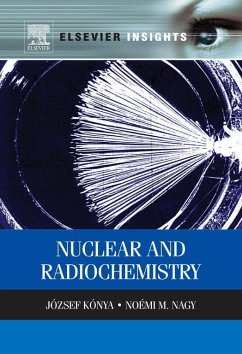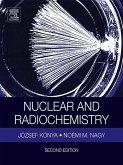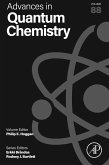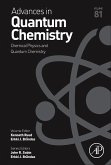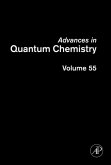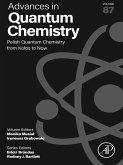The field of nuclear and radiochemistry is wide-reaching, with results having functions and use across a variety of disciplines. Drawing on 40 years of experience in teaching and research, this concise book explains the basic principles and applications of the primary areas of nuclear and radiochemistry. Separate chapters cover each main area of recent radiochemistry. This includes nuclear medicine and chemical aspects of nuclear power plants, namely the problems of nuclear wastes and nuclear analysis (both bulk and surface analysis), with the analytical methods based on the interactions of radiation with matter. Furthermore, special attention is paid to thermodynamics of radioisotope tracer methods, the very diluted system (carrier-free radioactive isotopes) and the principles of chemical processes with unsealed radioactive sources. This book will be helpful to students and researchers in chemistry, chemical engineering, environmental sciences, and specialists working in all fields of radiochemistry.
- Basic concepts are introduced and practical applications explained, providing a full view of the subject.
- Laboratory work with unsealed radiochemicals is discussed in details that can be applied in research and authority in the lab environment.
Dieser Download kann aus rechtlichen Gründen nur mit Rechnungsadresse in A, B, BG, CY, CZ, D, DK, EW, E, FIN, F, GR, HR, H, IRL, I, LT, L, LR, M, NL, PL, P, R, S, SLO, SK ausgeliefert werden.

